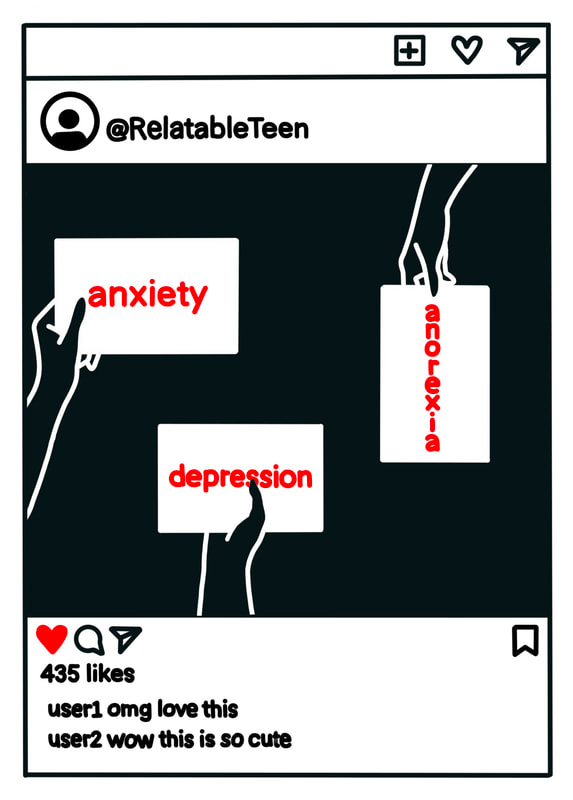|
By Tanisha Jhaveri We've probably all noticed an involuntary increase in our use of social media during the COVID-19 pandemic. Social media is a cause for concern, not only for the many harms of excessive screen time, but also for the content on these platforms, which, especially around sensitive issues like mental illness, should warrant caution. While social media gives us a useful way to express ourselves, mental illness is often romanticized on platforms such as Tumblr and Instagram through phrases or images that portray it as something aesthetic and beautiful. Rola Jadayel and Karim Medlej of the University of Balamand investigated the effect that the glamorization and romanticization of mental illnesses has on mental health. They aimed to gather a general perspective on teenagers’ and young adults’ experiences and opinions on glamorization and its psychological effect. They conducted a recorded discussion that was divided into three parts of 15 minutes each. It was clear that these problems were more common amongst participants that used social media frequently. During the discussion, they gained insight into the mechanisms by which mental illness is glamorized. According to one participant, "you always find pictures of well-dressed and attractive people who are in good shape alongside a depressing quote which appeals to the eye." Another participant confessed, "depression was appealing to me. I exaggerated it on Tumblr, saved many pictures and started sketching depressing drawings. It took a few months before I sought help and got diagnosed and treated for depression." A third participant said, "I thought anorexia was nice. I wanted to be anorexic." This sheds light on the troubling phenomenon where the romanticization of mental illness in social media manipulates people into thinking that it would make them more desirable or beautiful. This social phenomenon can be explained using the Social Learning Theory proposed by Albert Bandura. It centers around the idea of observational learning: behaviors can be learned by observing other people, or “models.” And because an individual is more likely to perform an action if they receive positive reinforcement from it, if the individual observes the model receiving positive reinforcement, they would be motivated to imitate it—a process known as vicarious reinforcement. In our case, social media users observe that the mental illness is being romanticized and portrayed as something desirable, which motivates them to imitate this image. They gain positive reinforcement and validation from being seen as more "desirable" and "artistic." The researchers also conducted two case studies to gain a deeper understanding of this. The studies were in the form of a written interview with a specific set of questions. The participants answered questions about their background and their experiences of the glamorization of mental illness on social media. In one case study, a 19 year-old participant, who had been diagnosed with Major Depressive Disorder at the age of 15, said that he resorted to the internet for support because he felt lonely, and there he encountered images glamorizing depression and self-harm. He revealed that these images worsened his mental health by encouraging him to engage with harmful behaviors and thoughts because of the artistic way in which depression and self-harm was frequently portrayed. It seems that mental illness has gone from being stigmatized to being sensationalized—to becoming a trend online that depicts victims of mental illness as "tragically beautiful." Although we have come a long way in destigmatizing mental illness and in encouraging people to express themselves and engage in conversations about mental health, we need to consider how to more accurately portray mental illnesses and how to stop its romanticization in popular culture and social media, because these serious and sensitive issues should not be reduced to an aesthetic.
2 Comments
9/28/2021 09:19:37 am
Usually I never comment on blogs but your article is so convincing that I never stop myself to say something about it. Really helpful.
Reply
12/11/2023 01:46:02 am
Explore a wide selection of super sexy call girls in Indirapuram through our renowned Indirapuram escorts service. Book independent escorts for an unforgettable experience in Indirapuram. Call 9718804775 now!! Visit here for more information:-https://delhicallgirlservice.in/indrapuram-escort.html
Reply
Leave a Reply. |
Categories
All
Archives
April 2024
|

